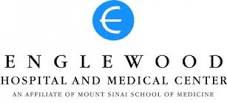ABSORB Post-Approval Clinical Study
| Status: | Withdrawn |
|---|---|
| Conditions: | Cardiology, Cardiology |
| Therapuetic Areas: | Cardiology / Vascular Diseases |
| Healthy: | No |
| Age Range: | 18 - Any |
| Updated: | 1/13/2018 |
| Start Date: | August 2017 |
| End Date: | January 2021 |
The ABSORB Post-Approval Clinical Study is a prospective, open-label, multi-center,
single-arm, non-randomized trial to evaluate the safety of the use of ABSORB in a real-world
setting following commercial physician training'and to observe the effectiveness of
commercial physician training on appropriate vessel sizing.
single-arm, non-randomized trial to evaluate the safety of the use of ABSORB in a real-world
setting following commercial physician training'and to observe the effectiveness of
commercial physician training on appropriate vessel sizing.
After approval of commercial use of Absorb GT1 Bioresorbable Vascular Scaffold (BVS) System
in over 75 countries as of December 31, 2015, Abbott Vascular has developed a post-approval
commitment plan that includes the initiation of the ABSORB Post-Approval Clinical Study, a
single-arm trial that will include approximately 2000 subjects at approximately 265 sites in
the US and Canada.
The objectives of ABSORB PostApproval Study are the following:
- Evaluate the safety of the use of Absorb in a real world setting following commercial
physician training.
- Observe the effectiveness of commercial physician training on appropriate vessel sizing
in the use of Absorb in a real world setting.
The study design allows evaluating low frequency events, effectiveness of commercial
physician training and education for very small vessels (< 2.25 mm as assessed by
quantitative coronary angiography [QCA]), and confirmation of generalizability of the
treatment with Absorb to real-world practice. The estimated follow-up of safety and
effectiveness will be 3 years.
Angiographic Subgroup:
Approximately the first 500 consecutive subjects implanted by operators inexperienced in the
usage of Absorb GT1 BVS to receive baseline assessment of reference vessel diameter (RVD) by
the angiographic core laboratory. An inexperienced operator is defined as having performed
two or fewer Absorb implants prior to commercial approval. The purpose of the angiographic
subgroup is to evaluate the effectiveness of training in the selection of appropriately sized
coronary arteries for GT1 BVS implantation. Study staff will be notified after the procedure
if the subject is in the angiographic subgroup, and instructed to send pre-procedure
angiogram and supporting materials to core laboratory for assessment.
in over 75 countries as of December 31, 2015, Abbott Vascular has developed a post-approval
commitment plan that includes the initiation of the ABSORB Post-Approval Clinical Study, a
single-arm trial that will include approximately 2000 subjects at approximately 265 sites in
the US and Canada.
The objectives of ABSORB PostApproval Study are the following:
- Evaluate the safety of the use of Absorb in a real world setting following commercial
physician training.
- Observe the effectiveness of commercial physician training on appropriate vessel sizing
in the use of Absorb in a real world setting.
The study design allows evaluating low frequency events, effectiveness of commercial
physician training and education for very small vessels (< 2.25 mm as assessed by
quantitative coronary angiography [QCA]), and confirmation of generalizability of the
treatment with Absorb to real-world practice. The estimated follow-up of safety and
effectiveness will be 3 years.
Angiographic Subgroup:
Approximately the first 500 consecutive subjects implanted by operators inexperienced in the
usage of Absorb GT1 BVS to receive baseline assessment of reference vessel diameter (RVD) by
the angiographic core laboratory. An inexperienced operator is defined as having performed
two or fewer Absorb implants prior to commercial approval. The purpose of the angiographic
subgroup is to evaluate the effectiveness of training in the selection of appropriately sized
coronary arteries for GT1 BVS implantation. Study staff will be notified after the procedure
if the subject is in the angiographic subgroup, and instructed to send pre-procedure
angiogram and supporting materials to core laboratory for assessment.
Inclusion Criteria:
- The subject agrees and signs the Institutional Review Board (IRB) approved informed
consent form
- The subject receives an Absorb
Exclusion Criteria:
- Subject is a member of a vulnerable population.
Vulnerable population: Defined as subject whose willingness to volunteer in a clinical
investigation could be unduly influenced by the expectation, whether justified or not, of
benefits associated with participation or of retaliatory response from senior members of a
hierarchy in case of refusal to participate. Examples of populations which may contain
vulnerable subjects include: Individuals with lack of or loss of autonomy due to immaturity
or through mental disability, persons in nursing homes, children, impoverished persons,
subjects in emergency situations, ethnic minority groups, homeless persons, nomads,
refugees, and those incapable of giving informed consent. Other vulnerable subjects
include, for example, members of a group with a hierarchical structure such as university
students, subordinate hospital and laboratory personnel, employees of the sponsor, members
of the armed forces, and persons kept in detention
We found this trial at
5
sites
Indianapolis, Indiana 46237
Principal Investigator: Saeed Shaikh, MD
Click here to add this to my saved trials
350 Engle St
Englewood, New Jersey 07631
Englewood, New Jersey 07631
(201) 894-3000

Principal Investigator: Joseph DeGregorio
Englewood Hospital and Medical Center Englewood Hospital was incorporated in 1888 as a non-profit, non-sectarian...
Click here to add this to my saved trials
Click here to add this to my saved trials
Click here to add this to my saved trials
Click here to add this to my saved trials